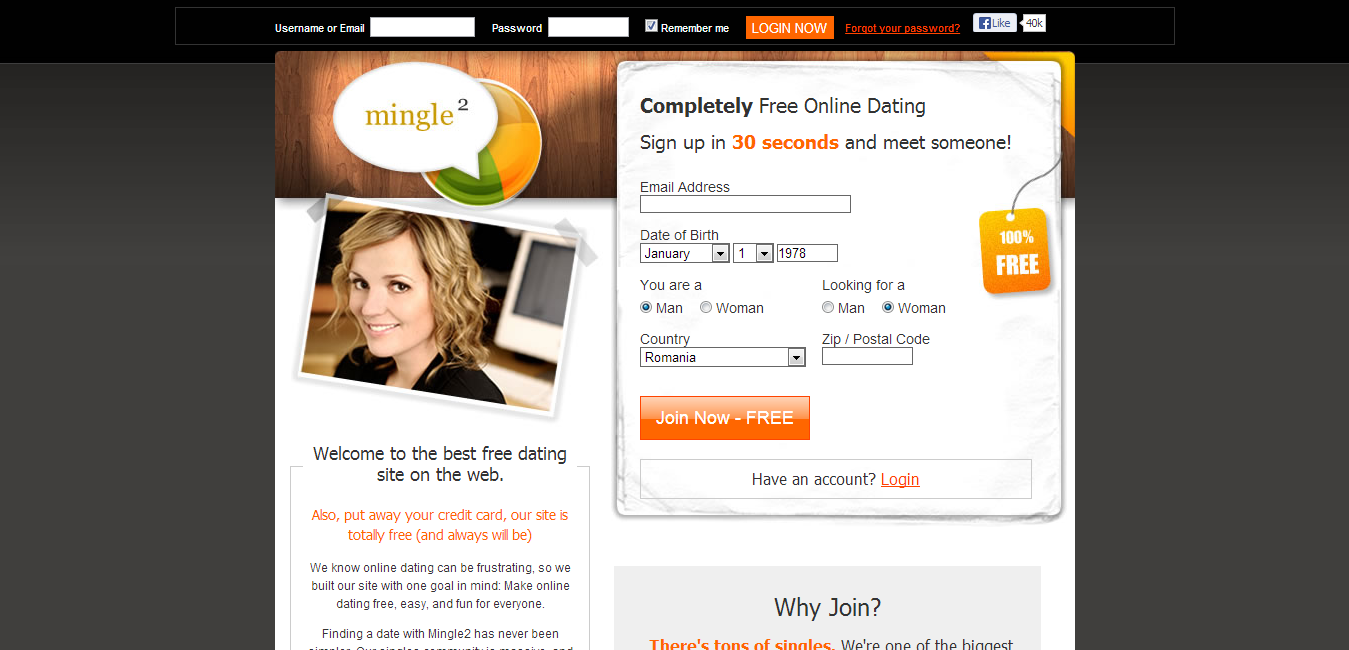The transition from MySpace to Fb was, as the social media scholar danah boyd has argued, a case of electronic “white flight. ” “Whites have been a lot more probably to leave or pick Facebook,” boyd explains.
“The educated ended up much more probable to go away or pick Facebook. All those from wealthier backgrounds were additional possible to go away or pick out Facebook. All those from the suburbs ended up more possible to depart or opt for Facebook.
- How essential might it be to hold common cash plans using a relationship?
- Will it be all right currently anyone with a a number of spiritual history?
- When will i manage internet dating an individual using a many different a better standard of introversion/extroversion?
- Examples of the symptoms of a partnership growing into way too process?
- Is that it fine to date a person with assorted proper grooming behaviors?
- How important and vital could it be of having corresponding investment ambitions inside a connection?
- How can i take on a partner who seems to be way too crucial of my physical appearance?
“In some sense, this was baked into Facebook’s premise. It began amongst college pupils – in specific between Harvard pupils, and then learners at other remarkably selective, elite schools, and then learners at all faculties, and so on.
Might it be acceptable until now a particular person with some other pastimes?
It grew out of an original consumer foundation that was mostly wealthy and white little by little it became connected with the bourgeoisie and MySpace with the proletariat. Facebook might or may possibly not have been intentionally exploiting these course dynamics, but those people https://buyabrideonline.com/italian-brides dynamics performed a incredibly genuine part in the site’s enhancement. If you question Hinge is the dating application of the privileged, contemplate that it literally rated financial institutions by the eligibility of their one employees.
(Hinge)Hinge, likewise, targets an elite demographic. It’s only offered in cities. Its customers are twenty-somethings and virtually all went to college. “Hinge people are ninety nine per cent faculty-educated, and the most common industries include things like banking, consulting, media, and fashion,” McGrath suggests.
- Can it be fine so far someone with some other nap routines?
- When will i handle going out with a person that have a other a higher level introversion/extroversion?
- Exactly what are the warning signs of someone with have faith in factors?
- Could it possibly be alright to this point somebody with teens?
“We a short while ago observed 35,000 customers attended Ivy League schools. “Classism and racism have normally been troubles in on-line courting. Christian Rudder, a cofounder of OKCupid, demonstrates in his guide Dataclysm that in 3 important traditional relationship web-sites – OKCupid, Match. com, and DateHookup – black women are persistently rated reduced than ladies of other races.
Buzzfeed’s Anne Helen Petersen put together a Tinder simulation in which 799 contributors (albeit non-randomly selected types) every evaluated 30 pretend profiles created employing stock shots, and located that people’s swipes depended strongly on the perceived class of the prospective match. ” If a user self-determined as upper-center-course and identified the male profile in advance of him or her as ‘working-course,’ that user swiped ‘yes’ only thirteen p.c of the time,” Petersen writes. But if they determined the profile as “middle-class,” the swipe level rose to 36 p.c. Hinge has carved out a specialized niche as the courting app of the privileged.
Hinge supplies nonetheless additional instruments for that type of judging. You can see where probable matches went to college, or where they labored. Indeed, this sort of assortative mating – matching people today of the very same socioeconomic course with each and every other – is embedded into the app’s algorithm. McLeod told Boston.
com’s Laura Reston the algorithm works by using your earlier alternatives to predict long term matches, and in apply your faculty and office, and social community in standard, normally provide as very good predictors. “McLeod notes that a Harvard university student, for instance, may well favor other Ivy Leaguers,” Reston writes. “The algorithm would then compose lists that incorporate much more folks from Ivy League institutions. “Obviously, Hinge failed to invent this dynamic as Reston notes, seventy one percent of college graduates marry other faculty graduates, and particular elite educational facilities are especially superior at matching up their alumni (over ten p.c of Dartmouth alums marry other Dartmouth alums).

And the Hinge point sheet frames this component of the algorithm as just an additional way in which the application resembles becoming set up by a mate:Think of setting up your pickiest friend. 1st, you’d assume of all the men and women you know who he/she may well like to meet up with. Then you would prioritize those people tips based mostly on what you know about your friend (choice for medical practitioners, dislike for legal professionals, like for Ivy Leaguers etcetera). Last but not least, more than time you would start off to learn his/her preferences and refine your recommendations.
Which is specifically how Hinge’s algorithm functions. There’s the “Ivy Leaguers” illustration once again.